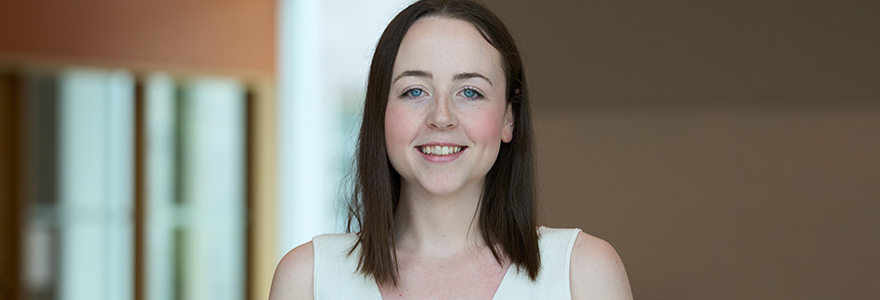Meet a Student
Paige - London, ON

Paige is excited to draw from the diverse aspects of the program to enhance her knowledge and practice in the field of women's healthcare.
Why did you pursue a degree in Nursing?
A nursing degree is, in my opinion, the best value for an undergraduate degree. The career opportunities and pathways for a Registered Nurse are countless. Of course, there are the dozens of specialities in direct patient care alone, but RNs also work in government, policy, research, public health, academia or even the legal field. While working as an RPN, I realized I had unmet potential for the impact I could have on my patients. I wanted to elevate my practice to be more autonomous, with greater opportunities for leadership and advancement, and that is exactly what the RPN to BScN stream of the CTF program offers.
Why did you decide to study at Western?
Despite being born and raised in London, I have never taken the prestige and quality of a Western education for granted. It truly is a world class institution, with an incomparable student experience. Western Nursing in particular, has a national reputation of excellence. It was serendipitous that Western launched the fastest RPN to BScN program in the country in the cycle I was applying to bridge. The decision to integrate RPNs into the compressed timeframe program highlighted the respect the school has for the prior education and experience RPNs bring to Western, which made me feel valued, even before being offered admission.
What is your most memorable experience in the program?
I have been pleasantly surprised to discover a new interest in public health! I came into the program with a passion for women’s health and I was very happy to discover that a few of my professors had direct patient care experience in the specialty. Each of them was happy to share their career pathway which gave me a newfound understanding of the real-world possibilities waiting for me after registration. It was through these conversations I was able to identify which aspects of women’s health I could see myself practicing now, and which I could leave to be explored later. Having a faculty that is so accessible has made my progression through the program feel more purposeful. For example, two professors have a background working at the health unit’s sexual health clinic and gave concrete examples of how they used what they were teaching in both microbiology and public health in their practices. Hearing the direct application of theory to my specialty of interest made the content easy to digest and easier to remember. When I wanted to expand on the clinical applications of course concepts after lectures, the professors were always happy to make time to talk.
How will your work change the world?
I am excited to pull from many areas of the program to develop my women’s health knowledge and practice over the next few years. From the optional perinatal nursing course, public health, mental health and skills labs, all aspects of the curriculum have influenced my practice. It is evident how intentionally cumulative the curriculum is, and even now I can appreciate the tools Western has given me to build my own practice.
Eventually, I plan to earn my Master of Nursing degree and become a Nurse Practitioner, perhaps leading a primary gynecological practice for annual exams, contraception counselling and prescription, cancer screenings, acute infection treatment, safer sex education, menopause management and more. Knowledge is the key to a sense of agency and I can only envision myself in a role where I can share evidence-informed health information with my clients to enable them to claim that agency. Empowering women, and keeping them healthy, is vital for a resilient and vibrant society, and I am excited to, one day, contribute to that society in an upstream way.

